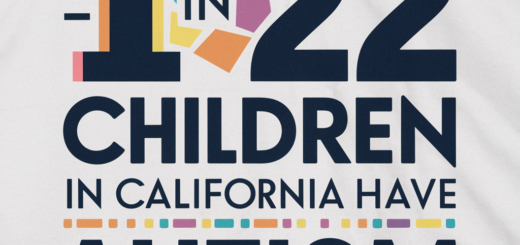Navigating Autism Testing in Australia for 2025: A Comprehensive Guide

The journey to understanding autism, whether for yourself, your child, or a loved one, often begins with the question of assessment and diagnosis. If you’re looking for information on “autism test Australia 2025,” you’re in the right place. This guide aims to provide a comprehensive overview of what to expect, current processes, costs, support, and the impact of new national strategies.
The Australian government and various organizations are placing a greater focus on autism, with the National Autism Strategy 2025-2031 aiming to improve the lives of autistic people. This includes a commitment to enhancing diagnosis pathways, services, and overall support. As we progress through 2025, understanding these developments is key.
Understanding Autism Spectrum Disorder (ASD)
Autism Spectrum Disorder (ASD) is a neurodevelopmental condition characterized by differences in social communication, social interaction, and restricted and repetitive behaviours, interests, and activities. It’s a spectrum, meaning it affects individuals in diverse ways and to varying degrees. Early signs can be present in young children, while for others, characteristics may become more apparent later in life.
Key things to remember:
- Autism is a lifelong condition.
- Strengths and challenges vary greatly among autistic individuals.
- A diagnosis can be a crucial step towards understanding, support, and accessing necessary services.
Why Seek an Autism Test in Australia in 2025?
Seeking a formal autism assessment can provide numerous benefits:
- Understanding and Validation: A diagnosis can offer an explanation for differences and challenges experienced, leading to greater self-understanding and validation.
- Access to Support and Services: A formal diagnosis is often required to access specialized support services, therapies, and educational programs.
- National Disability Insurance Scheme (NDIS): For eligible individuals, a diagnosis is a key step in applying for NDIS funding, which can cover a wide range of supports. The National Autism Strategy emphasizes improving access to diagnosis, which is crucial for NDIS pathways.
- Tailored Strategies: Understanding an individual’s autistic profile allows for the development of tailored strategies at home, school, work, and in the community.
- Early Intervention: For children, early diagnosis and intervention can significantly improve developmental outcomes.
The Autism Diagnosis Process in Australia (2025)
The process for obtaining an autism diagnosis in Australia follows national guidelines, with the National Guideline for the Assessment and Diagnosis of Autism in Australia (updated in 2023 by Autism CRC) serving as a best-practice framework. While the core process remains consistent in 2025, the National Autism Strategy aims to improve its accessibility and affordability over time.
Who Can Diagnose Autism in Australia?
A formal autism diagnosis is typically made by:
- Paediatricians: For children and young people.
- Psychiatrists: For children, adolescents, and adults.
- Registered Psychologists with expertise in autism assessment.
- Less frequently, Neurologists.
Often, a multidisciplinary team approach is recommended, especially for children, which might involve speech pathologists and occupational therapists contributing to the assessment.
Steps Involved in an Autism Assessment:
- Initial Consultation & Referral:
- The first step is usually to consult with a General Practitioner (GP). The GP can discuss concerns, conduct an initial screening, and provide a referral to a relevant specialist (e.g., paediatrician, psychiatrist, or psychologist).
- For children, a child health nurse or school counsellor might also suggest an assessment.
- Comprehensive Assessment: This is a thorough process and may include:
- Detailed Developmental History: Gathering information about the individual’s development, behaviour, and family history.
- Interviews: Speaking with the individual (if appropriate for their age and communication style) and parents/caregivers.
- Observations: Observing the individual’s social interaction, communication, and behaviour, sometimes in different settings (e.g., clinic, home, or childcare/school via reports).
- Standardized Assessment Tools: Clinicians use validated tools such as:
- Autism Diagnostic Observation Schedule, Second Edition (ADOS-2): An observational assessment of communication, social interaction, and play or imaginative use of materials.
- Autism Diagnostic Interview-Revised (ADI-R): A comprehensive, structured interview with parents or caregivers.
- Other questionnaires and rating scales.
- Cognitive and Language Assessments: To understand the individual’s strengths and challenges in these areas.
- Adaptive Behaviour Assessment: Evaluating everyday living skills.
- Feedback and Reporting:
- Once the assessment is complete, the clinician(s) will discuss the findings with the individual and/or their family.
- A comprehensive written report is provided, outlining the assessment results, diagnostic decision, recommendations for support, and strategies.
Differences in Testing for Children vs. Adults:
- Children: Assessments often focus on developmental milestones, play skills, and observations in educational settings. Parental input is crucial.
- Adults: Assessments for adults involve a retrospective look at developmental history (childhood experiences can be key), current functioning, and self-reported experiences. Input from family members or partners can be helpful if available and with consent. The process acknowledges that some autistic adults may have developed coping strategies that mask some characteristics.
Finding an Autism Testing Service in Australia for 2025
- Referral Pathways: Your GP is the primary starting point for referrals.
- Public System: Public health services may offer diagnostic assessments, often through child development units or community health centres. Waitlists can be very long.
- Private System: Many individuals opt for private assessments due to shorter wait times, though this incurs significant out-of-pocket costs.
- Key Organizations and Resources:
- Amaze (formerly Autism Victoria): A peak body providing information, support, and the Autism Connect national helpline (1300 308 699).
- Autism Spectrum Australia (Aspect): Provides information, diagnostic assessments, and services.
- State-Based Autism Associations: Each state and territory often has its own autism association offering local information and support (e.g., Autism Queensland, Autism SA).
- Autism CRC (Cooperative Research Centre): Provides evidence-based information and developed the national diagnostic guidelines.
- Reframing Autism: An organisation led by Autistic people, for Autistic people and their families and allies.
Questions to Ask Potential Providers:
- What is your experience in diagnosing autism (specifically for the relevant age group)?
- What assessment tools and processes do you use? Do they align with the National Guideline?
- What are the estimated costs and are any rebates (Medicare, private health) applicable?
- What is the approximate wait time for an assessment?
- What does the assessment involve, and how long will it take?
- What kind of report will I receive?
What to Expect in 2025 for Autism Testing in Australia
- National Autism Strategy Impact: While the strategy was released in early 2025, its full impact on streamlining diagnostic pathways and improving affordability will be progressive. The First Action Plan 2025-2026 outlines initial steps. Keep an eye on updates from the Department of Social Services and Department of Health and Aged Care.
- Diagnostic Criteria: Australia primarily uses the criteria from the Diagnostic and Statistical Manual of Mental Disorders (DSM-5-TR) or the International Classification of Diseases (ICD-11). No major changes to these core criteria are anticipated for 2025 beyond existing updates, but clinicians will use the latest versions.
- Wait Times: Unfortunately, long wait times, particularly in the public system, are expected to continue to be a challenge in 2025. The National Autism Strategy aims to address this in the longer term.
- Telehealth: Telehealth may be used for some parts of the assessment process (e.g., initial interviews, feedback sessions), particularly in rural or remote areas or where accessibility is an issue. However, direct observation often remains a key component, especially for children.
- Funding Options:
- Medicare: Rebates are available for some assessment services.
- NDIS: The NDIS does not typically fund the diagnostic assessment itself but can fund therapies and supports after a diagnosis is confirmed and access criteria are met.
Cost of Autism Tests in Australia (2025)
The cost of an autism assessment in Australia varies significantly:
- Private Assessments: Can range from $1,200 to $5,000+. This wide range depends on the clinician’s experience, the complexity of the assessment, the number of sessions, and the location.
- Public Assessments: May be free or low-cost but often involve extensive waiting periods.
Medicare Rebates:
Medicare rebates can help offset some of the costs if you have a referral from a GP to a paediatrician or psychiatrist, and then for specific allied health assessment items.
- A paediatrician or psychiatrist can refer an individual for up to eight allied health assessment services in their lifetime (e.g., from a psychologist, speech pathologist, or occupational therapist) to assist with diagnosis. (These are under the “Helping Children with Autism” program items for children under 13 for diagnosis, and different items may apply for those over 13 or adults).
- Always discuss Medicare item numbers and potential rebates with the GP and the assessing clinician before proceeding.
- The Greens have proposed new Medicare items for autism assessments as an election commitment, but this is not current government policy as of early 2025.
Private Health Insurance:
Coverage for psychology assessments varies greatly between funds and policies. Check directly with your insurer.
After the Diagnosis: Next Steps and Support in Australia
Receiving an autism diagnosis is the beginning of a new chapter.
- Understanding the Report: Ensure you fully understand the diagnostic report. Ask the clinician to explain any terms or recommendations you’re unsure about.
- Early Intervention (for children): If your child is diagnosed, early intervention services are crucial. These can include speech therapy, occupational therapy, behavioural support, and specialized educational programs.
- NDIS (National Disability Insurance Scheme):
- Autism is a condition that may make an individual eligible for NDIS support if it causes permanent and significant functional impairment.
- A formal diagnosis is required as part of the NDIS application.
- The NDIS can fund a wide range of “reasonable and necessary” supports, including therapies, assistive technology, help with daily living, and community participation.
- Support Groups: Connecting with other autistic individuals or families of autistic people can provide invaluable emotional support, shared experiences, and practical advice. Look for local or online groups.
- Therapeutic Supports: Depending on individual needs, this may include psychology, speech pathology, occupational therapy, and social skills groups.
- Educational and Workplace Supports: Accommodations and support can be sought in educational settings and workplaces.
Frequently Asked Questions (FAQs) – Autism Test Australia 2025
Q: How long does an autism test take in Australia?
A: The entire assessment process can take several hours, often spread over multiple appointments. This includes interviews, direct observation/testing, and feedback. The time from referral to receiving a final report can take weeks or months, depending on waitlists.
Q: Is an autism test covered by Medicare Australia in 2025?
A: Medicare provides rebates for some parts of the assessment process if specific conditions and referral pathways are met (e.g., referral from a GP to a paediatrician/psychiatrist, and then specific allied health assessment items). It generally does not cover the full cost of a private assessment, and out-of-pocket expenses can be substantial.
Q: Can I get an autism test for an adult in Australia in 2025?
A: Yes, adults can be assessed for autism. The process is similar to that for children but tailored to adults, involving a review of developmental history and current functioning. GPs can refer adults to psychologists or psychiatrists with expertise in adult autism diagnosis.
Q: What are the best autism assessment tools used in Australia in 2025?
A: Clinicians in Australia use internationally recognized, evidence-based assessment tools. The “gold standard” tools often include the ADOS-2 (Autism Diagnostic Observation Schedule, Second Edition) and the ADI-R (Autism Diagnostic Interview-Revised), alongside other clinical measures and thorough history taking, in line with the National Guideline.
Q: Where can I find reliable information about autism in Australia for 2025?
A: Reputable sources include:
- Amaze: amaze.org.au (and their Autism Connect helpline)
- Autism Spectrum Australia (Aspect): autismspectrum.org.au
- Autism CRC: autismcrc.com.au
- Department of Social Services (for the National Autism Strategy): dss.gov.au
- Your state or territory’s autism association.
- Raising Children Network (for parents): raisingchildren.net.au
Q: Are there any major changes to autism diagnosis expected in Australia in 2025?
A: The most significant development for 2025 is the rollout of the National Autism Strategy (2025-2031) and its First Action Plan (2025-2026). This strategy aims to improve diagnosis pathways, support, and inclusion for autistic Australians. While the core diagnostic criteria (DSM-5-TR, ICD-11) and the National Guideline for Assessment and Diagnosis (updated 2023) remain the foundation, the strategy signals a commitment to systemic improvements over the coming years.
Conclusion: Your Path to Clarity
Seeking an autism assessment in Australia in 2025 involves navigating a system that is evolving, particularly with the introduction of the National Autism Strategy. While challenges like costs and wait times persist, a diagnosis can be a vital step towards understanding, support, and accessing resources like the NDIS.
Be proactive, ask questions, and seek out reputable professionals and organizations. Remember, whether it’s for yourself or someone you care for, this journey is about gaining clarity and finding the right support to thrive.
Disclaimer: This blog post provides general information as of May 2025. The information regarding autism assessment, services, costs, and government initiatives can change. Always consult with healthcare professionals, official government resources (like the Department of Health, Department of Social Services, and NDIS), and reputable autism organizations for the most current and personalized advice.
Discover more from Living with Autism
Subscribe to get the latest posts sent to your email.


